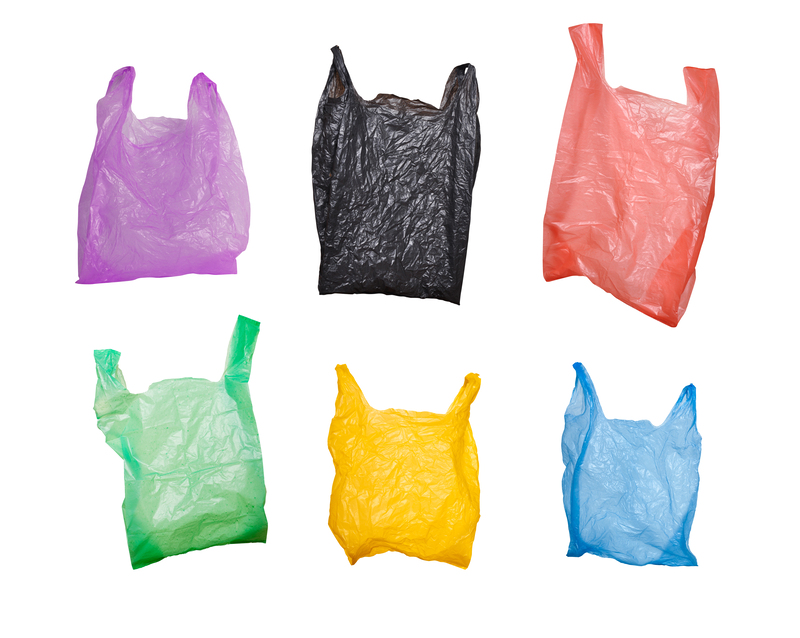Enhancing Public Health Through Reliable Waste Clearance Services
Public health and environmental safety are intrinsically linked to the effective management of waste. In today's rapidly urbanizing world, reliable waste clearance services are essential for maintaining a healthy and hygienic environment. This comprehensive article explores how dependable waste collection and disposal directly bolster community well-being, prevent disease, and pave the way toward a sustainable future.

Understanding Waste Clearance and Its Public Health Impact
What Is Waste Clearance?
Waste clearance, also commonly referred to as waste removal or junk clearance, involves the collection, transportation, and disposal of various types of waste generated by households, businesses, and industries. Efficient waste clearance services ensure that garbage, hazardous materials, recyclable items, and organic refuse are appropriately managed, processed, or reused.
Connection Between Waste Management and Public Health
Improper waste disposal leads to the proliferation of pests, water and air pollution, and the spread of infectious diseases. Reliable waste clearance services safeguard communities by ensuring waste does not become a breeding ground for pathogens. For instance, standing garbage can attract rats and insects, which are major disease vectors. Thus, properly scheduled and executed waste removal is a frontline defense in public health strategy.
- Prevents contamination of water bodies and air, reducing disease outbreaks
- Minimizes physical and chemical hazards in the community
- Supports a cleaner, more pleasant environment, boosting mental well-being
Types of Waste and Their Health Risks
Household Waste
Household waste, including food scraps, paper, plastics, and packaging, can attract pests and foster mold growth. If not regularly cleared, it can harbor bacteria and viruses causing gastrointestinal illnesses and respiratory issues.
Commercial and Industrial Waste
Businesses and factories generate a significant amount of commercial waste--ranging from office debris to production by-products. Industrial waste may contain toxic substances or heavy metals. Safe and reliable waste clearance services are crucial to prevent workplace exposure and environmental contamination.
Hazardous Waste
This category includes chemical solvents, batteries, paints, medical waste, and electronic waste. Mishandling these items threatens the health of both humans and animals. Proper disposal through specialist clearance services is not only a regulatory requirement but a critical public health measure.
How Waste Clearance Services Help Improve Public Health
1. Preventing Disease Transmission
Regular clearing of waste prevents the accumulation of organic matter that supports the multiplication of disease-carrying organisms. Flies, mosquitoes, and rodents thrive in such environments, increasing the risk of diseases like cholera, dengue, malaria, and leptospirosis.
2. Reducing Environmental Pollution
Proper waste management services prevent leaching of harmful substances into soil and water tables. They also avert air pollution produced by open burning of garbage. Cleaner air and water directly contribute to fewer cases of respiratory and waterborne diseases.
3. Supporting Safe Recycling and Recovery
Reliable waste removal companies play a key role in sorting and delivering recyclables to appropriate facilities. Effective recycling reduces the burden on landfills and mitigates environmental hazards while conserving natural resources.
- Encourage resource recovery and circular economy
- Reduce greenhouse gas emissions through proper handling of organic waste
- Promote safe handling of e-waste and hazardous refuse
Key Elements of Reliable Waste Clearance Services
Timely and Regular Collection
Scheduled pickups ensure waste does not accumulate to dangerous levels, maintaining community hygiene. Reliability in service timetables is essential for disease prevention.
Appropriate Waste Segregation
Separating recyclable, biodegradable, and hazardous waste at the source streamlines the disposal process and minimizes contamination risks. Trained professional staff provide bins and instructions to maximize segregation efforts.
Safe Transportation and Disposal
Specialized vehicles and facilities are used for different waste types. Reliable clearance services guarantee safety from the collection point to final disposal or processing, ensuring compliance with environmental standards.
Community Education and Involvement
Knowledgeable waste clearance companies invest in awareness campaigns, teaching businesses and residents about the importance of segregating waste, reducing consumption, and safely disposing of hazardous items.
Role of Technology in Modern Waste Clearance
Emerging technologies have transformed waste management and clearance services into more efficient operations. Some of the innovations making a difference include:
- Smart bins with sensors to alert collection services when they are full
- GPS and route optimization for waste collection vehicles, reducing fuel consumption and emissions
- Digital platforms for service requests, bookings, and tracking
- Automated sorting facilities for enhanced recycling rates
These advances mean that reliable, modern waste removal companies are now better equipped than ever to support public health and minimize community risk.
The Environmental Benefits of Dependable Waste Clearance
Reduction in Landfill Waste
Consistent and responsible waste clearance reduces the amount of rubbish destined for landfills. This limits harmful emissions such as methane, which exacerbates climate change and poses health risks.
Resource Conservation and Energy Savings
By diverting materials like glass, paper, metals, and plastics to appropriate recycling streams, waste clearance services help conserve raw materials and save significant amounts of energy compared to producing new items from scratch.
Protection of Natural Ecosystems
Proper disposal prevents hazardous substances from contaminating soil, water, and wildlife. Thus, the role of professional clearance companies in preserving ecosystems also contributes to safeguarding food supplies and public health.
How to Choose a Reliable Waste Clearance Service Provider
Certification and Compliance
Check for licenses and certifications that ensure the provider complies with environmental and public health regulations. Adherence to best practices guarantees responsible and safe operations.
Service Range and Flexibility
Choose a clearance company with a comprehensive bouquet of services--covering residential, commercial, industrial, and hazardous waste needs. Flexibility in scheduling and custom solutions for special projects are additional advantages.
Track Record and Customer Reviews
Research company reputation by reading customer testimonials and verified reviews. Long-standing, trusted service providers are more likely to offer reliable waste clearance solutions.
Eco-friendly Practices
Give preference to companies that prioritize recycling, composting, and use of green technologies in their operations.
- Transparent pricing and billing
- Convenient booking processes
- Availability of support and emergency services
Case Studies: Waste Clearance and Public Health Successes
Urban Cleanups: A Preventive Health Measure
Across cities worldwide, targeted waste clearance campaigns have dramatically reduced outbreaks of vector-borne diseases. For example, in areas where weekly household garbage collection was instituted, reported cases of dengue and leptospirosis dropped significantly within a year.
Waste Segregation in Healthcare Facilities
The introduction of professional waste removal services in clinics and hospitals has reduced medical staff's exposure to infectious materials. Sharps, contaminated dressings, and expired medications are now safely incinerated or treated--protecting both healthcare workers and the wider community.
Community-Driven Recycling Initiatives
Neighborhoods that partner with reliable waste clearance services see not only improved cleanliness but also better recycling rates, a sense of community ownership, and improved public morale.

Challenges and the Way Forward
Despite advancements in waste management, challenges remain. Illegal dumping, lack of public awareness, inadequate infrastructure, and funding constraints can compromise the reliability of waste clearance. To overcome these:
- Public education and engagement must be ongoing to reinforce the importance of correct waste disposal and regular collection.
- Governments should invest in modernizing waste management infrastructure and incentivize private sector participation.
- Integration of digital platforms can streamline bookings, billing, and feedback, improving service delivery.
- Stricter enforcement and penalties for illegal dumping are required to maintain community standards.
Conclusion: Prioritize Reliable Waste Clearance for Better Health
Reliable waste clearance services are more than a convenience--they are an essential element of a functional, safe society. By preventing disease, protecting environments, and fostering responsible consumption, these services form the bedrock of public health in urban and rural settings alike.
Communities, governments, and businesses must recognize the pivotal role played by robust waste clearance and removal companies, investing in their growth and modernization. Only through collective, consistent effort can we realize the vision of healthier, cleaner cities and a sustainable future for generations to come.
For more information on enhancing public health through effective waste clearance services, consider reaching out to your local waste management provider or exploring resources on environmental and public health best practices.